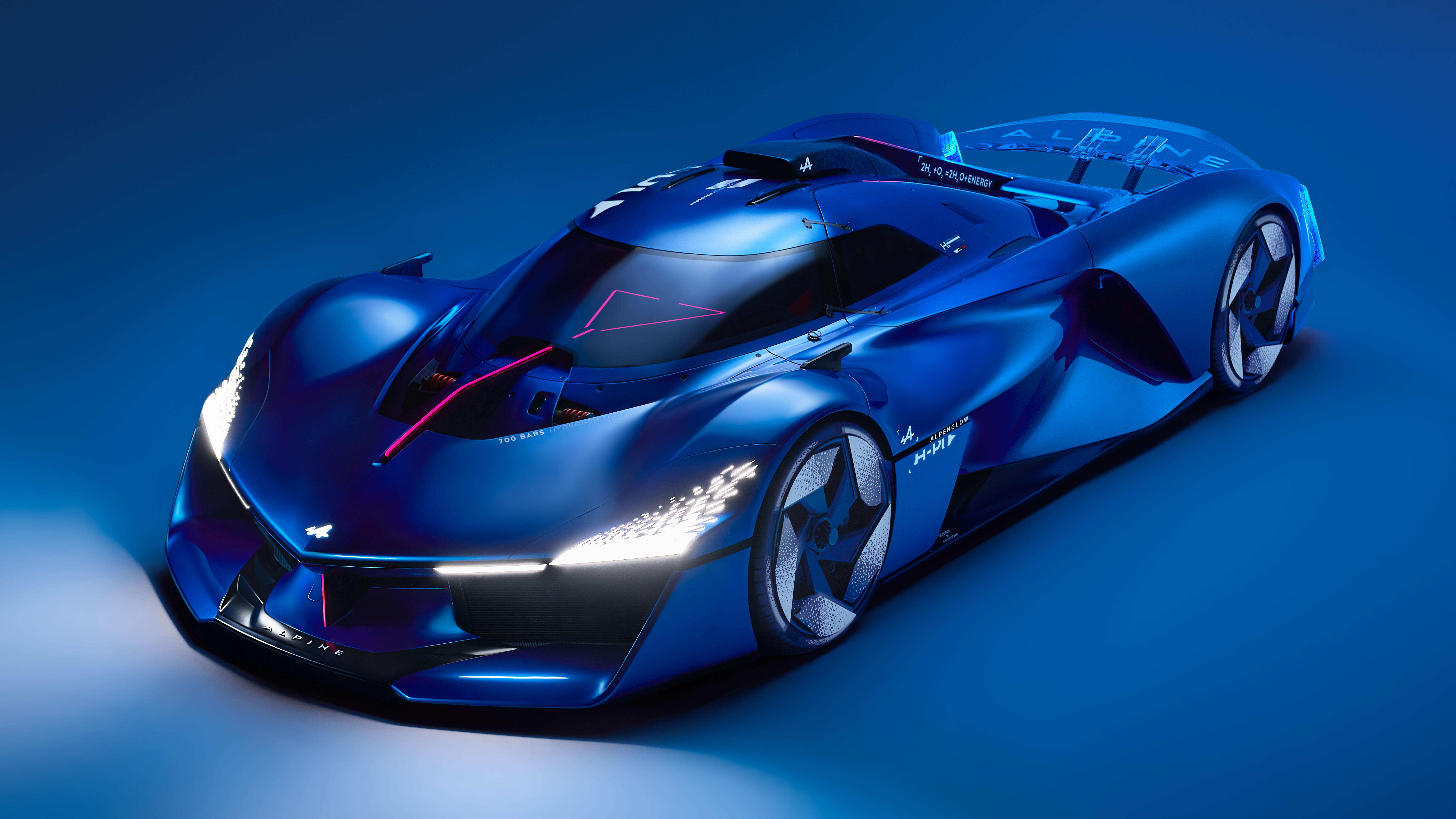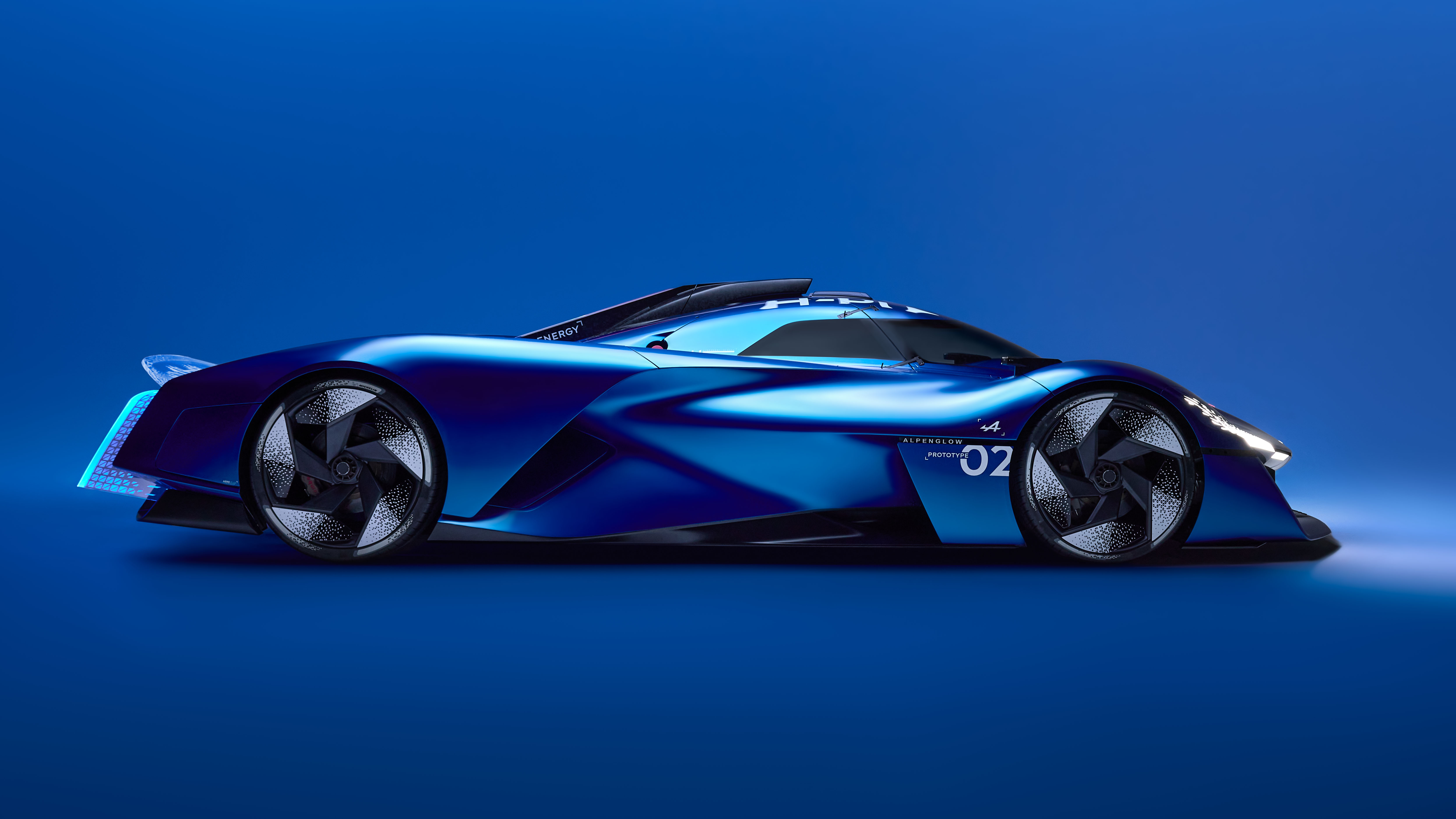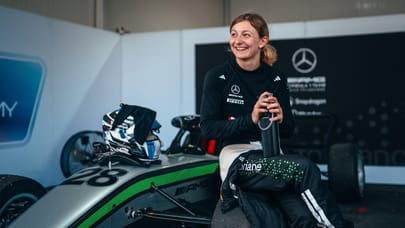
Alpine's hydrogen V6 Alpenglow could race at Le Mans... and morph into a road-going supercar
... once the small matter of seven new electric cars are out the way. But still: a proper hydrogen Alpine supercar might happen
Concept hypercars are always good for fizzing up a motor show stand. But the Alpine Alpenglow, with its hydrogen-fuelled V6, is a pretty high-effort way to do it. The engine alone took two years to develop and it has no other car to go into. Which is why the company's boss Philippe Krief says it's a possibility for Le Mans racing, and even a distant possibility for a road supercar.
Mind you he emphasises the firm has higher priorities for the time being. Alpine has promised to launch seven electric cars in seven years, starting with the A290 hot hatch and A390 coupe-crossover.
So is the Alpenglow a 740bhp moment of madness? No. It's the coming together of Alpine's commitment to zero emissions, its endurance racing activity, and its parent Renault's business in hydrogen vans.
Those vans use fuel cells rather than the Alpenglow tech of hydrogen combustion. But to put the vans on the road Renault has got involved in the clean-hydrogen production and distribution game.
Also, there's a new European law that says hydrogen fuel stops for vans and trucks must be built at regular intervals on European highways. At the moment lack of filling stations is the major reason hydrogen vehicles are so vanishingly rare.
Since Alpine's parent is involved in hydrogen and Alpine itself is involved in racing but wants to be zero-emission, the idea of a hydrogen racer makes sense. But fuel cells don't work for racing because they're hard to cool when working hard.
Hence the hydrogen combustion engine. It's not very efficient but it emits zero CO2, and it's more efficient overall than using synthetic fuel. Also a hydrogen ICE racer would be much lighter than a battery equivalent, could refuel faster, and make a familiar race-car noise.
Krief tells TopGear.com that he's actively considering a hydrogen combustion car for Le Mans if the next round of rule changes makes sense of it. "We're exploring it for motorsport. But at the moment it's an advanced engineering project not a real programme."
Then, unprompted, he mentions a road-going version. "We need 15 months to decide to do a road legal supercar with hydrogen combustion." It depends partly, but not wholly, on that European hydrogen network becoming a reality.
Top Gear
Newsletter
Thank you for subscribing to our newsletter. Look out for your regular round-up of news, reviews and offers in your inbox.
Get all the latest news, reviews and exclusives, direct to your inbox.
Trending this week
- Car Review
BMW iX3










